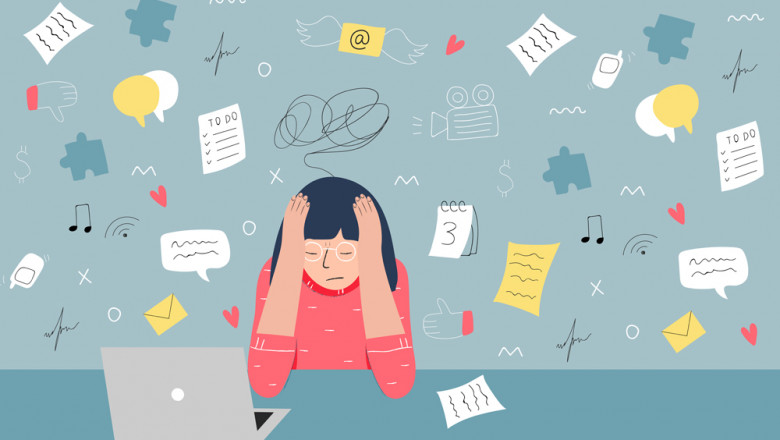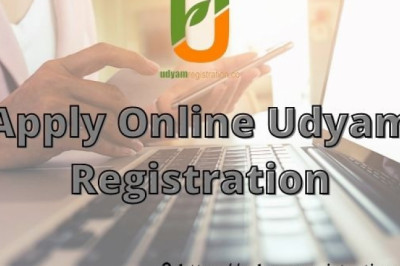views


- Although stress is a normal phenomenon neutralized after the stressful stimuli pass, anxiety is intense worry and fear that persists without an apparent stressor. While adopting long-term stress relief practices like yoga is beneficial to stress management, sometimes you need instant relief.
- Here are some simple stress-coping mechanisms for immediate stress relief.
-
Breathing Exercises
Sometimes all it takes to overcome a moment of intense fear, worry, or a panic attack is taking a breath. Stress and anxiety may manifest as physical symptoms, and one significant symptom is rapid breathing.
When feeling stressed, you tend to take rapid shallow breaths or hyperventilate. Such irregular breathing relays to the brain that you are facing a threat. In a typical stress response, your brain triggers stress hormones release, leading to elevated cortisol levels in your body.
However, one report shows that taking deep breaths preceded by exhalation helps expel up to 70% of cortisol from your body. The kind of deep breathing that induces calm is called abdominal breathing and engages the diaphragm, contrary to rapid thoracic breathing.
Adopting abdominal or diaphragmatic breathing techniques and other breathing exercises should help you calm down instantly. The advantage of breathing exercises is discretion and instant relief.
-
Progressive Muscle Relaxation (PMR)
Progressive muscle relaxation is a psychological tool that combines physical and mental elements to achieve a sense of calm. It is a sequence exercise that entails tensing and releasing one muscle group at a time. Moreover, it also includes a sense of heightened awareness towards the emotions accompanying the muscle tension and relaxation motions.
The relaxation technique works by drawing your attention to the stress-induced muscle tension and the relief and comfort from letting go of the stress. PMR has several benefits, including muscle relaxation, normalizing blood pressure and heart rate, and enhancing an overall feeling of wellbeing.
What's more, you do not have to assume a particular position as long as you are comfortable. Begin with the muscle groups in your feet and progress upward, tensing them for approximately 20 seconds before releasing them.
PMR has a bit of a learning curve, and beginners may require some online resources for practice. However, once you master the technique, it instantly helps tackle panic attacks and intense stress.

-
Music Therapy
Besides being a universal language, music effectively eliminates stress and anxiety. According to a study on music therapy, music profoundly affects the mind and the body. The study's findings indicate that music synchronizes with the brain, releasing alpha brain waves frequency, typically produced during deep relaxation and light sleep.
Different music elements like the tempo and lyrics elicit different stress relief reactions. For instance, high-tempo upbeat music triggers feelings of optimism. On the other hand, low-tempo, soothing music induces calmness.
The task here is pretty simple, finding the kind of music that relaxes you. You can create a "serenity" playlist that you turn to when feeling overwhelmed.
-
Mindfulness and Meditation Exercises












